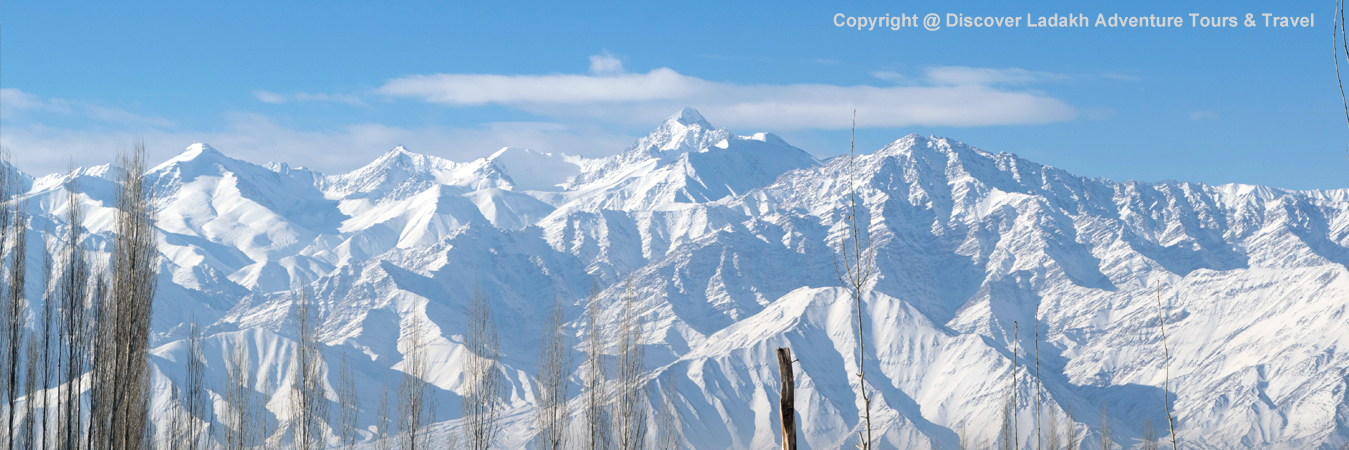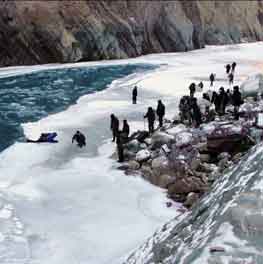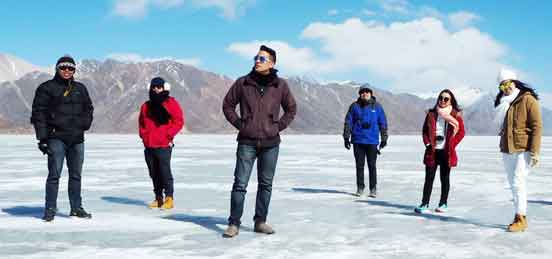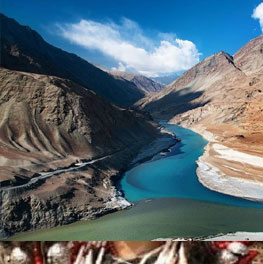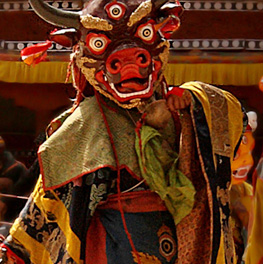What is Acclimatization?
The main cause of altitude sickness is approaching too high too quickly. Given enough time, your body will adapt to the decrease in oxygen at a specific altitude. This process is known as acclimatization and generally takes one to three days at any given altitude, in this case The body produces more red blood cells to carry oxygen, Pressure in pulmonary capillaries is increased, The body produces more of a particular enzyme that causes the release of oxygen from hemoglobin to the body tissues.
Having proper rest and drink more water may lead for proper acclimatization. Though there is no substitute for proper acclimatization
Leh city is located at an altitude of 3500 meter above sea level and this is a high altitude Desert area. Visiting in winters you might need to extra precautions to get acclimatized well. Nights will be in minus and even days will be less than 10 D Celsius. Therefore you have more chances for the lungs infections.
Some people feel high altitude sickness on the day of arrival in Leh, therefore this is highly recommended to follow some of the essential tips to avoid high altitude sickness. Avoid travelling for a long distance like Nubra / Pangong Lake / Tso Moriri Lake even lower Indus Valley. Remain in your hotel in Leh and have a complete rest on the day of arrival. This is suggested to have a walk up to Shanti Stupa / Gompa Village to gain height and back to the hotel on bit lower altitude to sleep. Day by day greenery is widening in overall Leh valley which leads increase of Oxygen in the atmosphere.
In term of mountaineering altitude is divided in three section
| High |
2,500 to 4,000 metres |
(8,000 to 13,000 feet ) |
| Very High |
4,000 to 5,500 metres |
(13,000 to 18,000 feet) |
| Extremely High |
over 5,500 metres |
(over 18,000 feet) |
This is difficult to determine who may be affected by altitude sickness since there are no specific factors such as age, sex, or physical condition that correlate with High Altitude Sickness. Some people get it and some people don't because some people are more flexible with their acclimatization.
The Causes of Altitude Sickness
The percentage of oxygen at sea level is about 20 - 22% approx. and the barometric pressure is around 750 - 765 mmHg approx. As altitude increases, the percentage remains the same but the number of oxygen molecules per breath get reduced. At 3,600 metres (12,000 feet) the barometric pressure is only about 480 mmHg, so there are roughly 40% fewer oxygen molecules per breath so the body must adjust to having less oxygen.
In addition, high altitude and lower air pressure causes fluid to leak from the capillaries in both the lungs and the brain which can lead to fluid build-up. Continuing on to higher altitude without proper acclimatization can lead to the potentially serious, even life-threatening altitude sickness at very high altitude.
Prevention of Altitude Sickness
Some basic guidelines for the prevention of AMS:-
If you do fly or drive, over 3000 – 3500 M ASL do not overexert yourself or move higher for the first 24 hours.
If you go above 3,500 metres, only increase your altitude by 350 metres per day, and take a rest day to acclimatize.
Climb high and sleep low! in a day as long as you come back down and sleep at a lower altitude. If you begin to show symptoms of moderate altitude sickness, don't go higher until symptoms decrease.
If symptoms increase, go further down to sleep.
Keep in mind that different people will acclimatize at different rates.
Stay properly hydrated. Acclimatization is often accompanied by fluid loss, so you need to drink lots of fluids to remain properly hydrated, at least four to six litres per day).
Take it easy and don't overexert yourself when you first get up to altitude. But, light activity during the day is better than sleeping
Avoid tobacco, alcohol and other depressant drugs
Eat a high calorie diet while at altitude.
(Diamox): This is the most tried and tested drug for altitude sickness prevention and treatment. Consult your doctor how to use this drug

